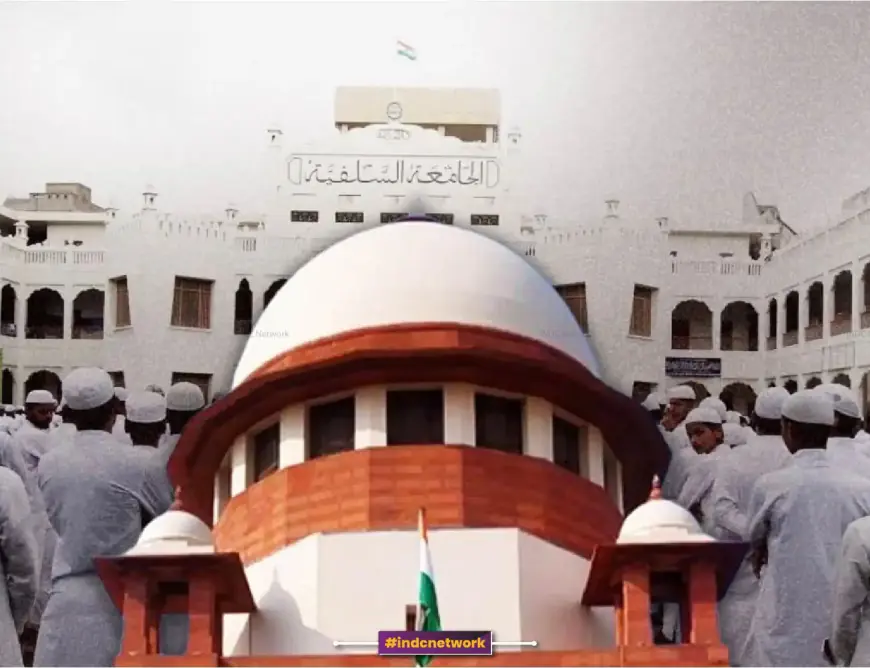Historic decision of Supreme Court: UP Madrasa Act will remain intact, Supreme Court overturned the decision of High Court
On Tuesday, the Supreme Court delivered a landmark judgement on the UP Madrasa Education Board Act 2004, overturning the Allahabad High Court's order. The court upheld the validity of the Act, saying that it does not violate the basic structure of the Constitution and fundamental rights. Along with this, the court affirmed the right to regulate the standards of education in madrasas, which is necessary to protect the right to education of the minority community.

INDC Network: New Delhi: Supreme Court's historic decision: Controversy over UP Madrasa Act 2004 ends, balance between religious rights and education
Supreme Court overturns Allahabad High Court's decision, UP Madrasa Act declared constitutional
On Tuesday, a bench of Chief Justice DY Chandrachud, Justice JB Pardiwala, and Justice Manoj Mishra gave an important verdict on the Uttar Pradesh Madrasa Education Board Act 2004 and upheld the validity of this Act. The Supreme Court rejected the decision of the Allahabad High Court, which had declared this law unconstitutional. This decision of the Supreme Court was a blow to the UP government, because the High Court had declared it unconstitutional, considering it against the Constitution and the principle of secularism.
The court clarified in its decision that the Act is for the protection of the rights to education of the minority community in the state and its purpose is to standardize the level of education in madrasas. The court said that the Act does not interfere with the day-to-day functioning of madrasas, but their purpose is to ensure the standards of education so that the students are able to earn a decent living.
Supreme Court's comment on higher education in madrasas
The Supreme Court said in its order that certificates beyond class 12, such as Kamil and Fazil, cannot be recognized by the UP Madrasa Board, as these are against the UGC Act. This means that more than 13,000 madrasas will continue to function in UP as before, and the state will regulate these education standards. The court also said that this act will improve the educational standards of madrasas, which will help students get better education.
The court, while rejecting the High Court's decision to declare the Madrasa Act unconstitutional, said that its purpose is only to regulate the standards of education. The court clarified that this Act does not violate the right of the minority community to educational institutions and is in line with the positive obligation of the state. The provisions of the Act enable the state to ensure that all students can receive quality education.
Justice Chandrachud's statement: Right to religious education, secularism and madrassas
Chief Justice DY Chandrachud said secularism means "live and let live." He asked whether the meaning of religious education cannot be included in the right to education. He said it would not be right to exclude religious education from the field of education, as the meaning of education in India is wide. He said, "Is it in our national interest to regulate madrassas?"
It also said, "Even if we uphold the High Court order, parents will still send their children to madrassas." The court considered the Act a positive step towards the history and contribution of madrassas, so that their ancient heritage can be preserved and they can be organised according to mainstream education standards.
Those who filed petitions in support of the Act had argued in the court that the High Court had wrongly construed the objectives of the Act as religious propaganda. On the other hand, NCPCR and other opposing interveners argued that the madrasa education system was undermining the promise of quality education contained in Article 21A of the Constitution.
With this decision of the court, it is now clear that the UP Madrasa Act 2004 can provide better direction to the state government towards the improvement of the Madrasa education system, and can also ensure the protection of the educational rights of minority communities.









